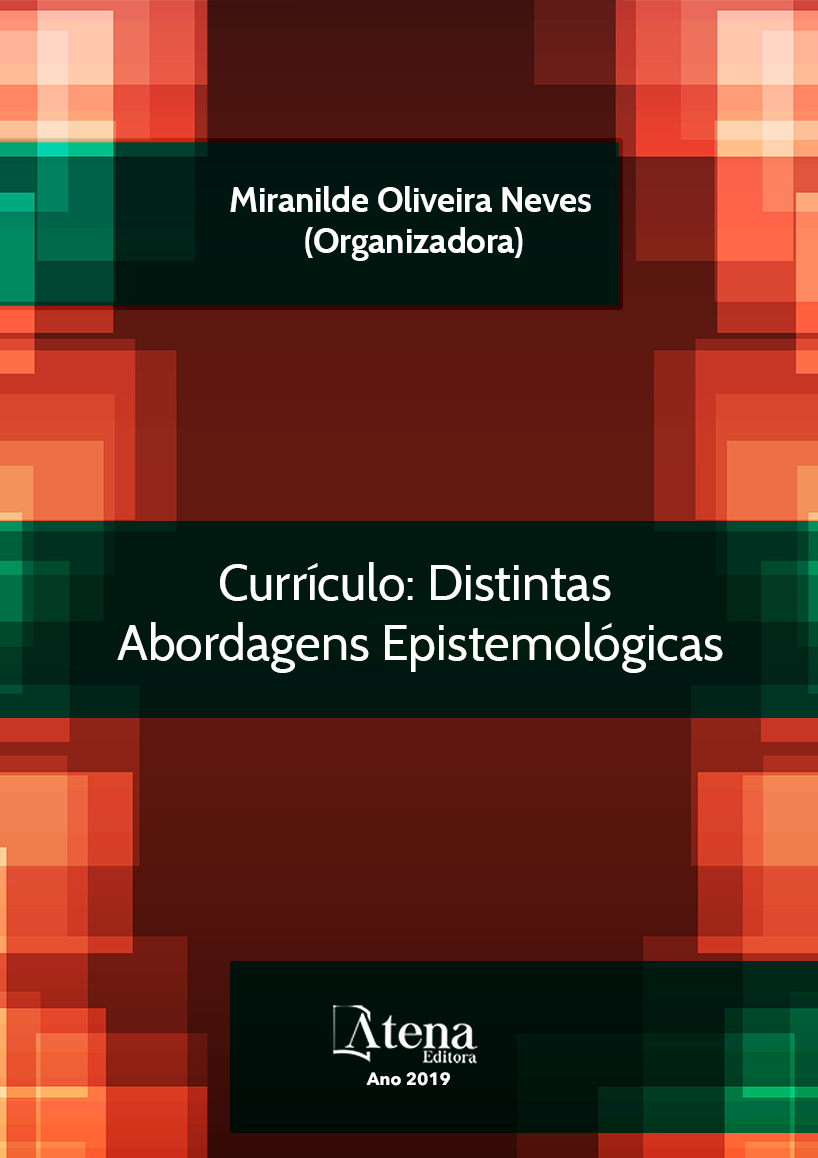
CURRÍCULO NA ESCOLA EM UMA COMUNIDADE TRADICIONAL QUILOMBOLA
O educador, no exercício de sua
profissão, se depara com um currículo elaborado
pelo sistema de ensino, que muitas vezes, não
contempla as realidades do espaço onde a escola
se territorializa. A pesquisa insere-se no campo
do currículo no cotidiano da escola cujo lócus
é o município de Garanhuns-PE, Nordeste do
Brasil, que congrega comunidades quilombolas,
com escolas de ensino fundamental. Esta
investigação objetiva compreender de que
forma o currículo, enquanto texto, no processo
histórico da educação brasileira, vivencia, no
campo escolar, em território de matriz africana,
as identidades representadas numa relação
educação e sociedade, diante das forças
externas e internas. A pesquisa, de natureza
qualitativa, buscou como método para coleta
dos dados, entrevistas, observação e análise
documental, discutidas à luz da fundamentação
teórica e análise do discurso. O currículo
representa um campo de disputa na escola e
que, na maioria das vezes, a comunidade escolar
não participa do seu processo de elaboração
oficial dos seus múltiplos contextos que
privilegiam um silenciamento do conhecimento
e uma imposição de fora para dentro desses
conhecimentos, sem levar em conta os vários
atores que existem no cotidiano da escola,
suas várias interculturalidade que não são
contemplados. Foi possível perceber tensões
táticas e astúcias no tocante a normatividade
no currículo. Os resultados apontam que a
relação de poder, historicamente construída
na educação, fortalece a superioridade racial
no currículo, e que, o enfrentamento, para uma
flexibilização e deslocamentos, representa
lacunas na formação e na prática pedagógica
das professoras entrevistadas.
CURRÍCULO NA ESCOLA EM UMA COMUNIDADE TRADICIONAL QUILOMBOLA
-
DOI: 10.22533/at.ed.6071930091
-
Palavras-chave: Currículo, Escola Quilombola, Prática Pedagógica.
-
Keywords: Curriculum, Quilombola School, Pedagogical Practice
-
Abstract:
The educator, in the exercise of his
profession, is faced with a curriculum elaborated
by the education system, which often does not
contemplate the realities of the space where the
school is located. The research inserts in the
field of curriculum in the daily life of the school
whose locus is the municipality of Garanhuns-
PE, Northeastern Brazil, which congregates
quilombola communities, with elementary
schools. This research aims to understand
how the curriculum, as a text, in the historical
process of Brazilian education, experiences, in
the school field, in territory of African origin, the identities represented in an education
and society relation, before external and internal forces. The research, of a qualitative
nature, sought as a method for data collection, interviews, observation and documentary
analysis, discussed in the light of theoretical foundation and discourse analysis. The
curriculum represents a field of contention in the school and that, in most cases, the
school community does not participate in its process of official elaboration of its multiple
contexts that favor a silencing of knowledge and an imposition from outside to inside
of that knowledge, without taking taking into account the various actors that exist in the
daily life of the school, its various interculturalities that are not contemplated. It was
possible to perceive tensions and wiles regarding normativity in the curriculum. The
results show that the power relationship, historically built in education, strengthens
racial superiority in the curriculum, and that the confrontation, for flexibility and changes,
represents gaps in the training and pedagogical practice of the teachers interviewed.
-
Número de páginas: 15
- Denize Tomaz de Aquino


